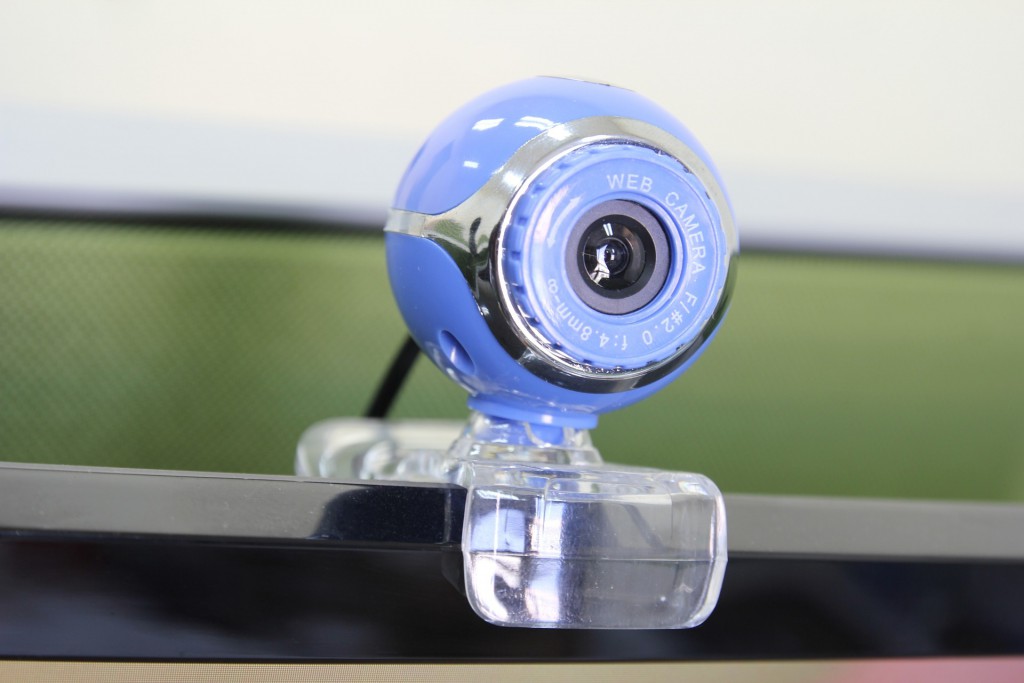How to Trim Your IT Resume
As experienced IT professionals update their IT resumes, keeping them concise is often an issue. IT staffing firms and hiring managers certainly understand that IT professionals aren’t beholden to the 1 page resume rule that many other professionals are. However, you certainly won’t attract more IT recruiting companies and technical recruiters with an absurdly long resume.
How can you decide what to keep on your resume and what IT recruiters will consider a waste of space? Here are some basic priorities to consider. Firstly, make sure your list of technical skills is complete and near the top of the resume. This is one of the most important parts of your resume, as it helps IT staffing companies see at a glance if you might be a fit for IT jobs. Don’t cut from this area.
Secondly, keep all relevant jobs and projects on your resume. When it comes to cutting material, irrelevant jobs (or at least excessive bullets below them) should be the first to go. You’ll also want to cut any jobs that were more than 10 – 15 years ago. Even if they’re relevant, they likely won’t strengthen your candidacy because they were just too long ago.
Lastly, don’t hesitate to cut volunteer activities, interests, or other personal information that isn’t directly related to your career path. Interested in hiking? You don’t need to add this on your resume. Volunteering at a coding class in your community? IT staffing agencies will want to read about this on your resume.

Delete These 2 Words from Your LinkedIn Profile and IT Resumes
One strong tactic you can use is to polish up your LinkedIn profile and resume is deleting words that will turn off technical recruiters and potential employers. Here are two words that won’t attract IT recruiters or hiring managers if you have them in your LinkedIn profile or resume – particularly in a summary or objective section.
- Don’t waste space in your summary or your taglines on LinkedIn with the word ‘motivated.’ Because it’s been so overused, it doesn’t mean much to IT staffing firms or interviewers. What really carries weight with IT recruiting companies and hiring managers are demonstrations of your motivation. Did you move up the ranks in a help desk department at a previous employer? Did you volunteer for some extra projects at your last IT jobs? Listing actions and results like this on your profile is a much better use of space!
- In the same vein, you won’t be impressing any IT staffing agencies or potential employers by calling yourself ‘driven’ on your LinkedIn profile or resume. Again, the word is far too over-used to be effective. It’s also not interesting to IT recruiting firms when you call yourself driven. If you had a reference call you driven, it would carry far more weight. However, since it’s a quality that’s hard to define, it’s important to consider that your opinion can’t really count here. You are, of course, biased about your own employability. When you pronounce yourself driven on your LinkedIn profile or IT resume, you’re really just stating something that IT recruiting agencies already know: you think you’d be an asset as an employee. Use the space on your LinkedIn profile or IT resume to tell them something they don’t know. What’s your technical background? What projects have you led? What have you achieved in your career? This is the kind of information that IT staffing companies want to see—not that you think that you are driven.

The IT Job Interview Challenge That Doesn’t Look Like a Challenge
Most IT professionals are trying to prepare for the challenges they’ll face as they interview for IT jobs. They prepare for the technical and non-technical questions that their IT recruiters anticipate. They prepare so they won’t be late for their interviews, even if there’s bad traffic or bad weather. (Because lateness is a cardinal sin to hiring managers and IT staffing firms). They practice with family members, friends, or technical recruiters so that their nervousness can’t overwhelm them. But here’s a challenge that you may not even recognize as a challenge: a very friendly interviewer.
How is a friendly interviewer a challenge? Your IT recruiting agencies probably won’t warn you about this. Nor do most tip sheets for interviews. In fact, this sounds like a nice thing. The truth is, though, a friendly interviewer can make you feel comfortable enough that you make a couple key mistakes.
One of the worst mistakes you might make with a friendly interviewer is losing your professionalism. You want to make sure that, while you’re not overly stiff or unpleasant, you don’t forget to be your best, most professional self. Never curse or tell inappropriate jokes. Even if you have a great connection with the interviewer, they still aren’t your friend in that moment. Don’t treat them like a friend. Treat them like somebody you must impress.
The second mistake, one that IT staffing companies find is easier to recover from, is talking too much and/or getting off track. Again, this is all about remembering that your interviewer is somebody to impress. Stay focused in your answers. Highlight the important points and relay that you have the qualities and technical background to succeed in the job. When you go off on a long tangent about one thing (especially something irrelevant, like small talk) you are losing time to strengthen your candidacy. Don’t let a friendly interviewer tempt you to spend 20 minutes talking about your hobbies! It’s important to remember that your IT recruiting firms don’t want you to totally skip small talk. Some small talk is important because it shows that you are a pleasant, easy person to work with. But your IT recruiting companies won’t hear that you got the IT job unless you keep your eyes on the prize in your interview.

How to Answer This Scary IT Job Interview Question
IT recruiting firms hear about a lot of hard interview questions. Usually, these questions are very technical. However, sometimes IT recruiters hear about basic interview questions that really stump candidates. Here’s one question that often strikes fear in the heart of IT professionals as they interview for new IT jobs: Have you ever been fired?
Obviously if you’ve never been fired before, this question is easy to answer. However, if you have been fired before, this question sounds pretty terrifying. The truth is, though, if you answer it correctly, it can be a chance to help cement your candidacy. While a firing is not necessarily a good thing, technical recruiters hear about it relatively often. Most IT staffing firms have seen at least a few perfectly competent, capable professionals fired (and then hired elsewhere!). It’s merely a part of professional life. As you answer this question, remember that. Don’t lie and don’t panic as you answer the question. Your IT recruiting firms and hiring managers would much rather you honestly answer yes, rather than lie about having ever been fired.
Your IT recruiting agencies will also want you to keep your answer short and neutral. Don’t be tempted to bash your former employers, nor should you go into a long-winded, defensive explanation of your firing. A quick, one sentence answer should be just fine! A good answer here will demonstrate that you can be professional, positive, and honest. These are all qualities that your IT staffing companies (and hiring managers!) would love to have you demonstrate in an interview. Thus you can take a question that seemed designed to hurt your candidacy and use your answer to actually strengthen it.

2 Insider Tips About IT Job Hunting
Sometimes it helps to get a bit of a hiring manager’s perspective as you work with IT recruiters to land your next role. Here are two things that IT staffing firms see that are more ‘behind the scenes’ (but will still be very relevant to IT professionals).
- Even if your technical skills are perfect, you may not be the right fit for IT jobs. Technical recruiters see this all the time: hiring managers don’t just want somebody with the perfect arsenal of technical proficiencies. Having a professional demeanor or certain soft skills are often just as important. As you prepare for your interviews, ask your IT staffing companies for a full picture of what the ideal candidate is. This might help you perform a bit better in your interviews.
- Your interviewer may not know exactly what they need yet. Especially in IT, the hiring process can be very dynamic. IT recruiting agencies find that companies can sometimes change the requirements of an IT job even after interviews have begun or resumes have been reviewed. Companies need to keep up with the speed of technologies. Sometimes the effect of that is that the IT jobs your IT staffing agencies submitted you for this week will be a little different next week. Or perhaps you may be helping out on different projects than you (or the hiring managers) initially anticipated.

How to Sell Yourself (Without Clichés!) in your IT Job Interviews
In IT job interviews, most IT recruiters want their candidates to convey some qualities that feel cliché. Your IT staffing firms may even explicitly say to you to show passion in your interview or to make sure that you convey that you’re a team player. The candidates that IT recruiting agencies have no trouble placing in IT jobs are great at conveying these qualities in a more concrete way. They give solid examples of times they show employable qualities, and thus they don’t look like they’re just describing themselves with clichés.
How do you make sure your interviewer gets it that you actually are a hard worker, a fast learner, or passionate about your work? Start by questioning how you know these qualities are applicable to you. Why do you think you’re a hard worker? What do you mean when you say you’re passionate about your work? As you think about these questions, you’ll start to come up with more concrete statements. You’re a hard worker because you don’t mind putting in the extra hours until programs are totally debugged. You’re passionate about help desk roles because you genuinely enjoy seeing end-users able to achieve what they need to with your help. These are the statements your IT recruiting companies really want you to give your interviewers.
To really drive home these kinds of statements, you may want to tell a quick anecdote. Your technical recruiters don’t want you to derail the interview with long stories. Just a sentence or two about a time you demonstrated important qualities will help. Practice these anecdotes in the mirror or with a family member or friend. Putting time into this will really pay off – and your IT staffing companies will likely get some great feedback after your interview!

An IT Resume Mistake that Designers Often Make
IT recruiters often work with various kinds of designers and creative professionals to find IT jobs. Often, technical recruiters come across resumes for these IT professionals that are done with pictures, unconventional formats, and multiple types of font. If you’d like to attract IT staffing firms and hiring managers, doing this with your resume may actually be hurting you.
Why would it turn off IT recruiting agencies and potential employers to showcase your design skills and creativity on your resume? For one thing, it may make it harder for IT staffing agencies to find the information they need to decide you’re a great candidate for particular roles. Since IT recruiting firms often sift through hundreds of resumes daily, their time is limited. They may not have time to decipher a format that is anything beyond simple and conventional. The same is true for potential employers—except even more so. Hiring managers are interviewing, and usually doing so on top of a large workload. Their time to read through resumes will be even more limited. Make it easy and fast for IT staffing companies and employers to decide you’re an interesting candidate by using a conventional, clean resume format.
The second reason a creative resume format may hinder your job search is that it may suggest that your skills and experience aren’t strong enough to speak for themselves. Gimmicky resumes are often used by professionals who aren’t as confident in their own candidacy. Use a conventional format and showcase your experience, technical proficiencies, and other skills. You can always showcase design skills in a portfolio or links to relevant work. If you use a more conventional resume format, you will get more attention from IT recruiting agencies and hiring managers.

Why It’s Important to Be Pleasant in IT Job Interviews
When your IT recruiters help you prepare for job interviews, they’ll usually go over things like what technologies you should brush up on or the main responsibilities of the role. What your IT staffing companies probably assume (and hope) you already know about are the soft skills necessary for interviewing for IT jobs. Probably one of the most important things you must do in IT job interviews is be pleasant.
Why is this important? There are two main reasons. Firstly, you need to make sure your interviewer can see that you’ll be pleasant to work with. Your IT recruiting firms will already have made a case for you as a strong candidate because of your technical skills and experience. When you go into the interview, your job is to build on that impression, then show that you’ve got the necessary soft skills for the job. On a very basic level, this means having great communication skills and a positive attitude. If you’re not pleasant at your interview, you’re failing on this very important part.
The second reason you need to be pleasant at your IT job interviews is because you want to make the interview process easier on your interviewer. Just as interviewing is hard for you, it may be difficult for your interviewer. They may be taking time away from an already full plate to interview candidates. They may get nervous, just as you do. Bringing the right demeanor and attitude to your interview will make the process much better for your interviewer. The better you make this process for your interviewer, the more likely it is that your IT staffing agencies will hear that you got the job!

This May Help You in IT Job Interviews
When you’re working with IT staffing companies to find new IT jobs, you might be intimidated by your interviewers and future employers. It’s worth knowing, though, that often they aren’t comparing you against the detailed checklist you might expect. While interviewers can always give your technical recruiters a good basic idea of who they need to hire, sometimes things are more up in the air than you’d think.
Why is this relevant to you? Because it can help you approach your job search with a more optimistic, energetic perspective. When your IT recruiters set you up for an interview, they are doing so because you have the basic requirements, experience, and technical proficiencies for the role. Sometimes, a hiring manager has a more open mind and doesn’t know for sure what their ideal candidate will be like. This means that you don’t have to live up to as many items on a hiring check list. If you (and your IT staffing agencies) put energy into selling yourself well, you have a good chance of showing an open-minded hiring manager that you are the candidate they’re looking for.
How do you use this to help you? Make sure to ask your IT recruiting companies for a detailed job description. Then ask them if they know anything else about the role or the company’s needs. When you’re in the interview, go beyond just pointing out that you’re qualified for the role. Take a little time to make sure the interviewer also hears about how you helped implement some unique projects or you’re certified in a rarer technology. Try to tie these back to the role or any other needs the company might have. When you make sure your interviewer knows about these special, unexpected points, you may just help them see you as the candidate they didn’t even know they wanted.
Try to remember that while hiring managers have given IT staffing firms a basic idea of what they want, you never know how set they are on who they want to hire. Especially in IT, with the constant flux of technology and its influence on companies, it’s possible the door is open much wider than you think.

Don’t Get Caught Off Guard by These 3 IT Job interview Practices
Sometimes when you’re working with IT recruiters to find new IT jobs, you might encounter some surprises. Here are 3 parts of the job interview process that IT staffing agencies find surprise candidates – and how to deal with them.
- Coding tests: Your IT staffing firms will usually be able to at least warn you that you’ll have to take a coding test or some exercise similar to it. Technical recruiters find that candidates are often taken aback by it when they’re asked to take a test. It’s important to remain calm and flexible as you go through the process to find new IT roles. While it may not be your first choice to take a test, it is likely worth your time to do so. After all, what is 20 minutes’, or even an hours’ effort if you get a job you enjoy more and/or get paid more to do?
- Personality assessments: Again, many IT recruiting agencies find that candidates are often surprised when they’re asked to complete these tests. As with coding tests, the best way to approach these is to try to be patient and flexible because your efforts could be rewarded with a great IT job. It’s also noteworthy that these kinds of tests protect you as well. If you’re not a good fit for a job, it’s better to find this out ahead of time. You wouldn’t want to be hired for a job where your work style is too out of sync with the company. That’s not comfortable for you and it may even result in you losing your job later on.
- Video interviews: Lastly, IT staffing companies find that sometimes they must ask IT professionals to be ready to do a video interview. This kind of interview is slowly becoming more and more normal. However, many candidates express surprise, or even discomfort, when they are asked by their IT recruiting firms to do a video interview. The best way to be prepared for these kinds of interviews is to have your personal computer or laptop set up for Skype. Practice using it with friends and family so it becomes more natural. A video interview is ultimately the same as an in-person interview. It’s just a new medium to get used to.

